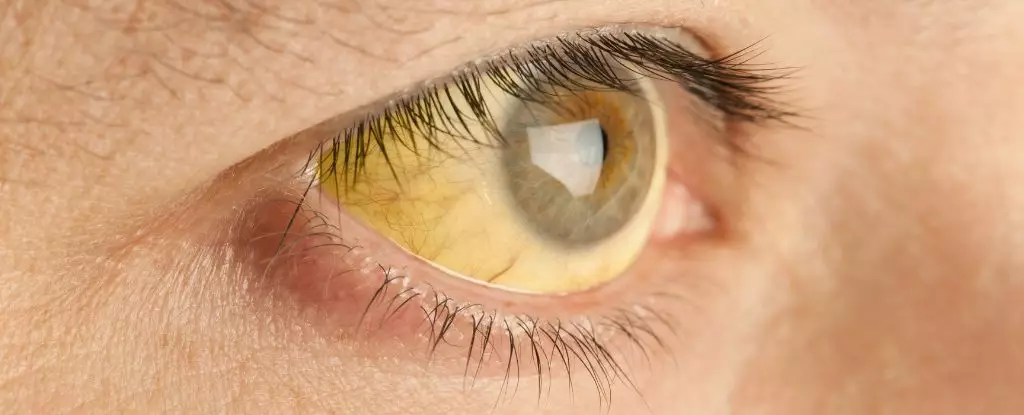Jaundice, characterized by the yellowing of skin and eyes due to elevated levels of bilirubin, is often viewed through an ominous lens. Traditionally seen as a sign of liver dysfunction and potential neurological damage, this condition has more recently generated curiosity for its potential protective qualities, particularly against infectious diseases like malaria. The tension in how we view bilirubin—once considered merely a waste product—has shifted, as recent research reveals its unexpected benefits in the fight against malaria. In a world where scientific discoveries can pivot our understanding of ancient maladies, this study transforms not only our knowledge of bilirubin but also the narrative surrounding public health.
Malaria: A Global Epidemic
Malaria stands as one of the most severe tropical health crises, with over 260 million people infected annually, predominantly in the tropics and subtropics. The unassuming Anopheles mosquito acts as the vector, delivering the infamous Plasmodium falciparum parasite into human blood. With casualties exceeding 600,000 deaths each year, the urgency for innovative treatments is palpable. As the parasite replicates within red blood cells, it poses a dual threat: it not only wreaks havoc on the body but also releases toxic iron-rich heme during cell destruction, exacerbating the disease. This relentless cycle demands a reevaluation of our defense mechanisms against malaria, leading us to explore bilirubin’s multifaceted role.
Bilirubin: The Unsung Hero
In a groundbreaking study, researchers have unearthed the idea that bilirubin could serve as a natural defense against malaria. In evaluating blood samples from individuals infected with P. falciparum, the findings underscored a stark contrast: those asymptomatic exhibited tenfold higher levels of unconjugated bilirubin. This striking revelation signifies a potential natural immunity woven intricately into human biology. While bilirubin has long been synonymous with adverse health effects, it seems that in the battle against malaria, it dons the cape of a defender. The question arises: could bilirubin be the key to bridging the gap between suffering and survival?
Animal Trials: Illuminating the Mechanism
The substantial role of bilirubin is further substantiated through mouse experiments. Mice genetically engineered to lack bilirubin presented as easy prey to the malaria parasite, evidencing the compound’s crucial protective qualities. In stark contrast, normal mice demonstrated elevated bilirubin levels upon infection, resulting in their survival against the same disease. The implications of these findings speak volumes; they not only highlight bilirubin’s protective qualities but also suggest a potential evolutionary advantage. The protective mechanism appears to disrupt the metabolism of the parasite within the infected red blood cells, effectively impeding its ability to thrive.
The Dilemma of Evolutionary Trade-offs
However, this newfound understanding brings forth a profound ethical dilemma. The very mechanism that offers protection against malaria may concurrently bear a hidden cost, wherein neonates face the peril of jaundice with potential neurological implications. As we embrace these discoveries, we grapple with a fundamental question: is it worth the trade-off? The evolutionary narrative paints bilirubin as a key player in the survival of humankind against malaria but presents a grim reality where the protection against immediate threats could jeopardize long-term health outcomes.
Looking Forward: A Call for Harnessing Nature’s Defenses
The quest for innovative malaria treatments has never been more urgent, and this research serves as a beacon of hope. With the depth of our understanding widening, the potential applications of harnessing bilirubin as a defensive strategy invite both intrigue and caution. Public health strategies could evolve, leveraging this natural compound to mitigate the burden malaria imposes on vulnerable populations. Imagine a world where the protective nuances of bilirubin become central in our battle against malaria—a transformative step toward reducing mortality rates globally.
As we dissect the intricate layers of bilirubin’s role in human health, let’s remain vigilant in our exploration. We must advocate for the responsible application of these revelations while navigating the complexities of nature’s own defense mechanisms, ensuring that the fight against infectious diseases does not stymie the progress of holistic human health. The story of bilirubin is not just one of survival; it is one of resilience, evolution, and the potential for innovation grounded in nature’s wonders.

Leave a Reply